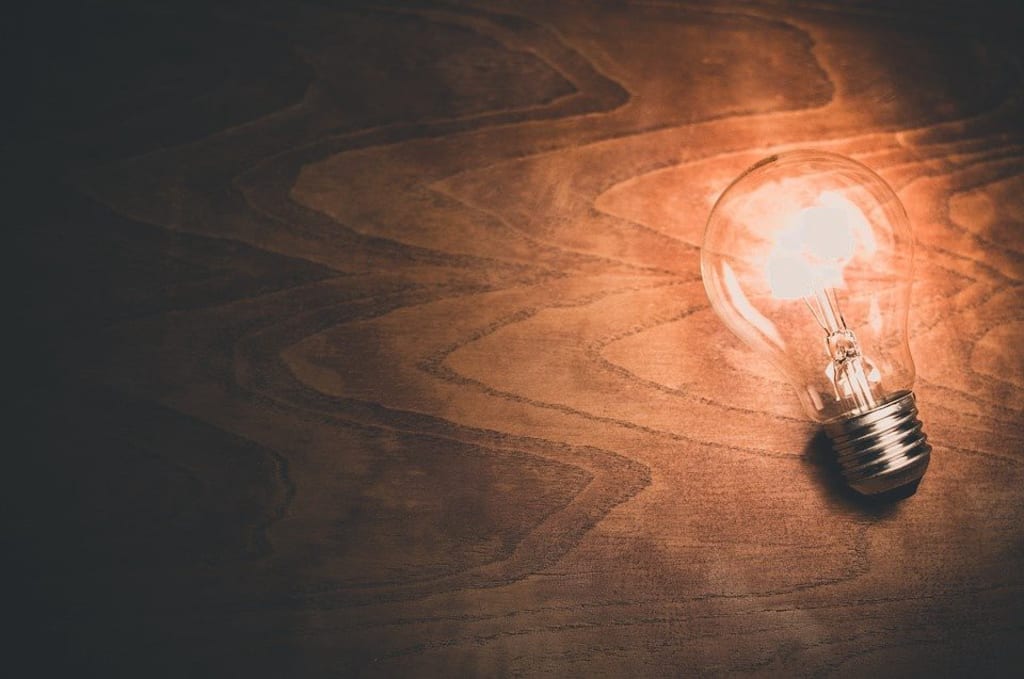Does Metacognition Require Metahuman Strength?
The importance of creating awareness around our thoughts and beliefs.

What do we think about and why do we think the way we think?
Do you ever stop to ponder this and then go deeper into it?
(I didn’t want to say “think” again because that’s just too much thinking.)
It’s interesting how we can learn a piece of information from a source we trust, then hear something negative about the source, or even the person - if it’s a person, and then change our opinion of the information once we have this new information. We can definitely do this. Or, we can keep the same opinion, depending on our beliefs and perceptions. Sometimes, we react differently as we learn new information too. Look at what the website "The Oatmeal" has to say about this below...
Check out this to see how: https://theoatmeal.com/comics/believe
This is part of the challenge we experience in our world today. We hear a piece of information and then start to question the source, especially, if it contradicts our current beliefs and perceptions. The fact we question it isn’t inherently bad. We should question things and challenge their validity. We must avoid “group thinking” or blindly accepting information as true or real. We also must be willing to question why we think they way we think. Enter the term metacognition.
Metacognition is essentially: Thinking about how, why, and what we think. Nancy Chick, CFT Assistant Director at Vanderbilt University, states metacognition is:
More precisely, it refers to the processes used to plan, monitor, and assess one’s understanding and performance. Metacognition includes a critical awareness of a) one’s thinking and learning and b) oneself as a thinker and learner.
As we move through life, inevitably, we will encounter new information along the way. How we think and respond to it is based on who we are, or think we are, at the time we receive it. One of the challenges we run into is a term called cognitive dissonance. This is what we experience when we try to hold two opposing beliefs at the same time. For example, if I’m a smoker who knows smoking is bad for my health, or I lie to someone but believe I’m an honest person.
The struggle and possible resulting pain of experiencing cognitive dissonance can cause us to respond in many ways to new information. We may get very emotional, whether it’s anger or sadness or any other strong emotion. We may discount the information and be dismissive of it right away. We can dig in deeper, becoming more convinced of what we already believed. We may also, if we’re open and willing to objectively look at it, be willing to listen and see if there is something to learn from it.
Through practicing metacognition we can learn to step back and objectively look at new information, digest it, do our own research, and formulate our own insights. We learn how to learn and be open to learning. We let go of being afraid or “triggered” by what we experience and embrace what it can teach us about ourselves.
Considering the fact we have new information and choices coming at us, repeatedly, each day, why not try to understand and learn what we can from it in the process. Approaching it this way allows us to foster the idea of becoming expansive and growth-minded. As opposed to allowing fear or judgement to block us from experiencing someone or something that can have a profound positive impact on our life.
Approaching life like a scientist and being naturally curious or inquisitive opens up the space for life to be an educational and enlightening journey. As we encounter cognitive dissonance, through metacognition, we can better observe, understand, and acknowledge the internal struggle that is happening within us. We can adjust and make changes as needed to create our new form of normal as we evolve. This process will become perpetual and repeat as we grow throughout our lives. Each of us can learn and grow in profound ways, if we choose to allow life to teach us.
Life begins at the end of your comfort zone. - Neale Donald Walsch
About the Creator
Doug Scavezze
I've been in leadership and the personal development field for over twenty years. Along the way, I discovered my passion for writing and the therapeutic benefits that come with it. I appreciate humor, creativity, and self-expression too.






Comments
There are no comments for this story
Be the first to respond and start the conversation.